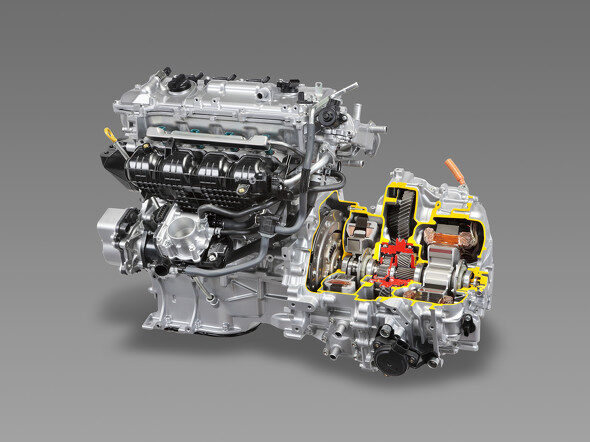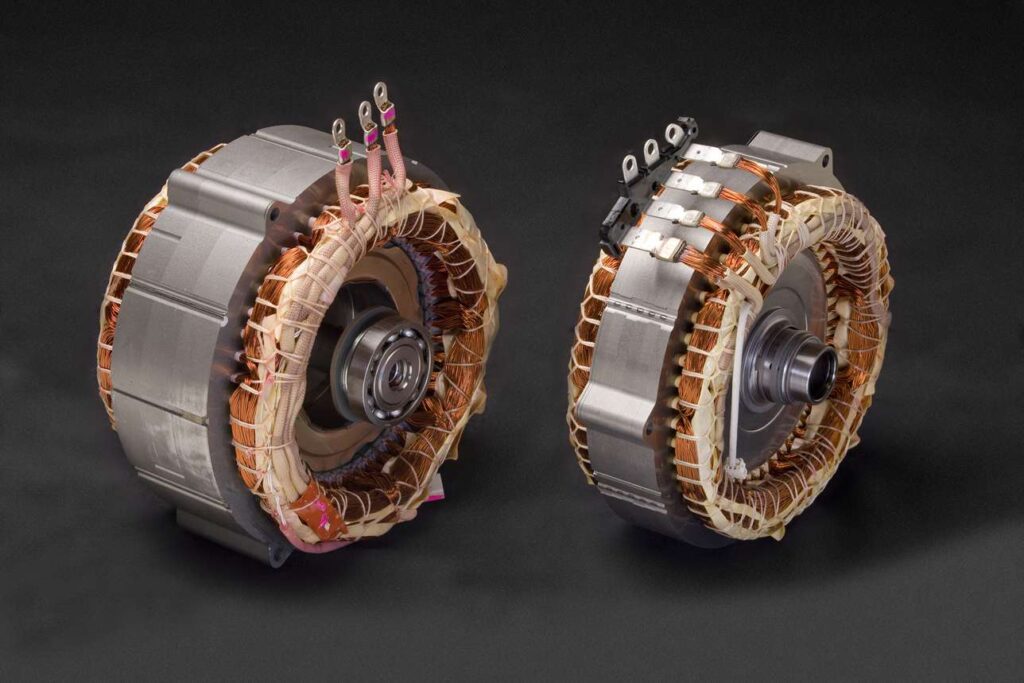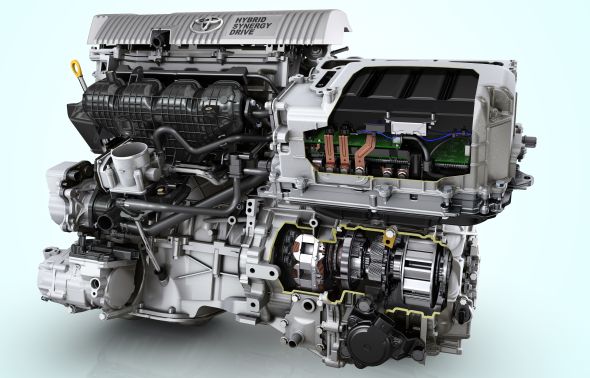As the world moves toward cleaner and more efficient vehicles, hybrid engine systems have become increasingly popular. Whether you’re considering buying a hybrid car or just curious about how they work, this guide will walk you through everything you need to know — in simple and clear terms.
🔍 What Is a Hybrid Engine System?
A hybrid engine system is a combination of a gasoline (or diesel) engine and an electric motor, designed to work together to power a vehicle. The goal is to improve fuel efficiency, reduce emissions, and deliver better overall performance.
In short:
Hybrid = Fuel Engine + Electric Motor working together
⚙️ How Does a Hybrid Engine Work?

Here’s a step-by-step explanation:
- At Low Speeds
The car often runs only on electric power, which saves fuel and emits no pollution. - During Acceleration or Highway Driving
The gasoline engine kicks in to provide additional power. - Braking & Coasting
The system uses regenerative braking to convert kinetic energy into electricity and store it in the battery. - Battery Power Management
The hybrid system automatically switches between the electric motor and the fuel engine to maximize efficiency.
🛠️ Types of Hybrid Systems
✅ 1. Full Hybrid (Parallel Hybrid)
Can run on the engine, the electric motor, or both. Most common type (e.g., Toyota Prius).
✅ 2. Mild Hybrid
The electric motor assists the engine but can’t power the car on its own (e.g., Suzuki Smart Hybrid).
✅ 3. Plug-in Hybrid (PHEV)
Has a larger battery that can be charged externally. Can run longer distances on electric power alone (e.g., Mitsubishi Outlander PHEV).
🌿 Benefits of Hybrid Engine Systems
🔋 1. Better Fuel Efficiency
Use less fuel, especially in city driving, where electric mode is most effective.
🌍 2. Lower Emissions
Less CO₂ and pollutants, making it an environmentally friendly option.
💸 3. Cost Savings
Reduced fuel bills and sometimes tax incentives or lower registration fees.
🛞 4. Quieter Driving Experience
Electric motors are silent, making for a smoother and quieter ride.
🔧 5. Less Wear and Tear
Engine is used less, which may result in longer engine life and fewer maintenance issues.
⚠️ Disadvantages of Hybrid Systems
- ❌ Higher initial purchase cost
- ❌ Battery replacement can be expensive
- ❌ May have less towing capacity than standard vehicles
- ❌ Slightly lower performance compared to traditional sports or diesel engines
🔋 What Is Regenerative Braking?

Regenerative braking is a key feature of hybrids. When you apply the brakes, instead of wasting energy as heat, the system captures energy and sends it back to the battery. This boosts efficiency and extends the electric driving range.
🔧 Do Hybrid Cars Need Special Maintenance?
Hybrids need less frequent brake replacements due to regenerative braking, but they do require:
- Battery health checks
- Inverter and motor system inspections
- Cooling system maintenance
- Regular engine oil and filter changes (for the gasoline engine)
Good news: Most manufacturers provide long warranties on hybrid batteries (up to 8–10 years).
📊 Hybrid Engine System vs Conventional Engine
| Feature | Hybrid Engine | Conventional Engine |
| Fuel Efficiency | Higher | Lower |
| Emissions | Lower | Higher |
| Driving Modes | Electric + Fuel | Fuel only |
| Purchase Price | Higher | Lower |
| Maintenance | Slightly lower long-term | Standard |
| Battery System | Included | Not included |
🚘 Popular Cars with Hybrid Engine Systems
- 🚗 Toyota Prius
- 🚙 Honda Accord Hybrid
- 🚗 Hyundai Ioniq
- 🚙 Lexus RX Hybrid
- 🚗 Kia Niro Hybrid
- 🚙 Ford Escape Hybrid
These cars are known for reliability, fuel savings, and eco-conscious design.
FAQ’s
1. How does a hybrid engine save fuel?
A hybrid engine uses electric power at low speeds and during idling, which reduces the need for gasoline and helps improve overall fuel efficiency.
2. Can a hybrid car run without gasoline?
Some hybrids (like plug-in hybrids) can run on electricity alone for short distances, but most still require gasoline to operate under certain driving conditions.
3. Is a hybrid engine good for highway driving?
Yes, but hybrids are most efficient in city driving. On highways, the gas engine is used more often, so fuel savings may be slightly less than in stop-and-go traffic.
4. How long do hybrid batteries last?
Hybrid batteries typically last 8 to 10 years or up to 150,000 miles, and most manufacturers offer extended warranties for peace of mind.
5. Are hybrid cars expensive to maintain?
Generally, hybrids have lower maintenance costs due to less wear on the engine and brakes, but battery replacement (after many years) can be costly.
6. Do hybrid engines perform well in cold weather?
Yes, but battery performance can drop slightly in freezing temperatures. Most modern hybrids are built to handle a wide range of weather conditions efficiently.
7. What is the difference between a hybrid and a plug-in hybrid?
A hybrid charges its battery through regenerative braking, while a plug-in hybrid can be charged via an external power source and has a larger battery for longer electric-only driving.
8. Can I tow with a hybrid car?
Yes, but towing capacity may be lower than that of traditional gasoline or diesel vehicles. Always check the vehicle’s manual for specific towing limits.
Final Thoughts
The hybrid engine system is a smart step forward in automotive innovation. It balances power, efficiency, and eco-friendliness, making it perfect for today’s eco-aware and fuel-conscious drivers. If you’re looking for a way to save money on fuel, reduce your carbon footprint, and still enjoy a smooth driving experience, a hybrid car is an excellent choice.




